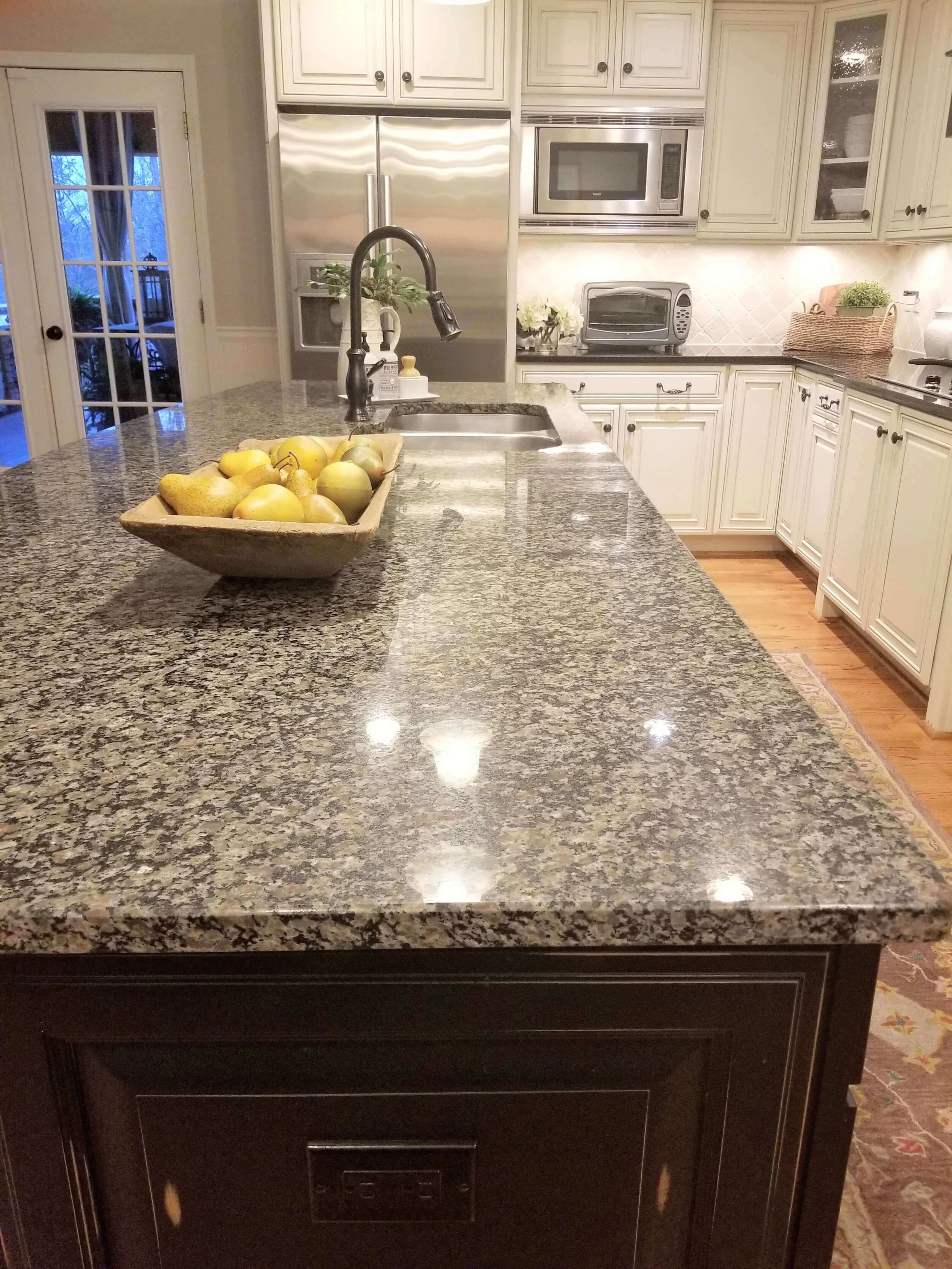Installing granite kitchen countertops is a significant investment that can enhance both the aesthetic appeal and functionality of your kitchen. Granite is a natural stone known for its durability, heat resistance, and timeless beauty, making it a popular choice for kitchen countertops. Whether you’re remodeling your kitchen or building a new home, installing granite countertops requires careful planning and execution. Here’s a comprehensive guide to help you navigate the process:
Choose the Right Granite: Start by selecting the type of granite that best suits your kitchen’s style and requirements. Granite comes in a wide range of colors, patterns, and finishes, so take your time to explore different options and find the perfect match for your kitchen design.
Measure Your Space: Accurate measurements are essential for ensuring a seamless installation process. Measure the dimensions of your kitchen countertops carefully, taking into account any appliances, sinks, or other fixtures that will be installed along with the granite countertops.
Prepare the Substrate: Before installing the granite countertops, ensure that the substrate is properly prepared. This may involve removing old countertops, leveling the cabinets, and reinforcing the support structure to accommodate the weight of the granite.
Hire a Professional Installer: While it’s possible to install granite countertops yourself, hiring a professional installer is highly recommended. Experienced installers have the necessary skills, tools, and expertise to ensure a flawless installation and minimize the risk of costly mistakes.
Cutting and Fabrication: Once you’ve chosen the granite slab, the installer will take precise measurements and cut the slab to fit your kitchen countertops. This process may involve using specialized tools such as diamond saws and routers to achieve the desired shape and edge profile.
Sealing the Granite: Granite is a porous material, so it’s essential to seal the surface to protect it from stains, spills, and moisture damage. The installer will apply a high-quality sealant to the granite countertops before installation to ensure long-lasting protection.
Installing the Countertops: On the installation day, the installer will carefully transport the granite slabs to your home and place them on the prepared substrate. The slabs will be positioned and secured in place using adhesive or mechanical fasteners, ensuring a stable and secure fit.
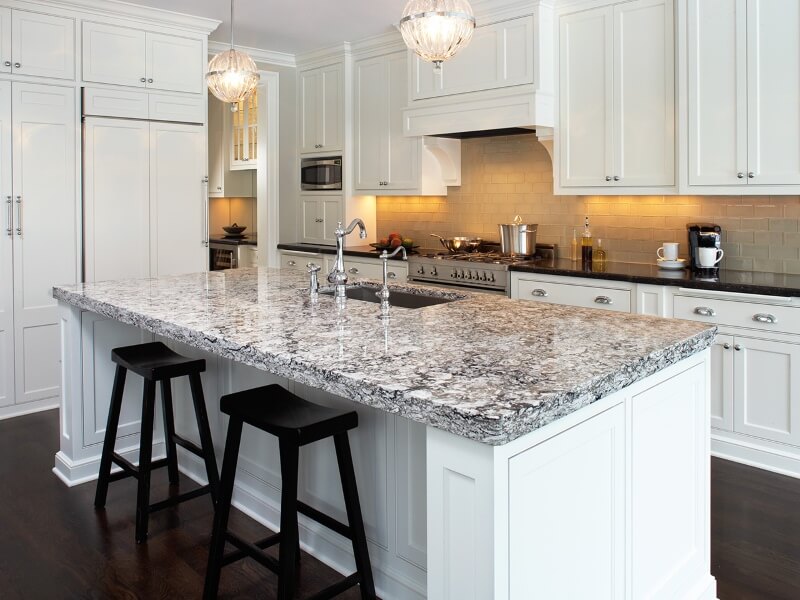
Seam Placement: In some cases, multiple granite slabs may be required to cover the entire countertop area. The installer will carefully align the seams between the slabs to create a seamless and visually appealing finish. Specialized techniques such as mitered edges or color-matching adhesive may be used to minimize the visibility of seams.
Attaching Sink and Fixtures: Once the granite countertops are in place, the installer will cut openings for the sink, faucets, and other fixtures. These openings will be carefully measured and cut to ensure a precise fit, and the fixtures will be securely attached to the granite countertops.
Final Inspection: After the installation is complete, the installer will perform a final inspection to ensure that everything meets your expectations. Any necessary adjustments or touch-ups will be made to ensure that the granite countertops are flawless and ready for use.
Cleaning and Maintenance: Proper cleaning and maintenance are essential for preserving the beauty and longevity of your granite countertops. Use a mild soap and water solution or a granite-specific cleaner to clean the surface regularly, and avoid using harsh chemicals or abrasive cleaners that can damage the sealant.
Avoiding Damage: While granite is highly durable, taking precautions is essential to avoid damage. Use cutting boards and trivets to protect the surface from scratches and heat damage, and clean up spills promptly to prevent staining.
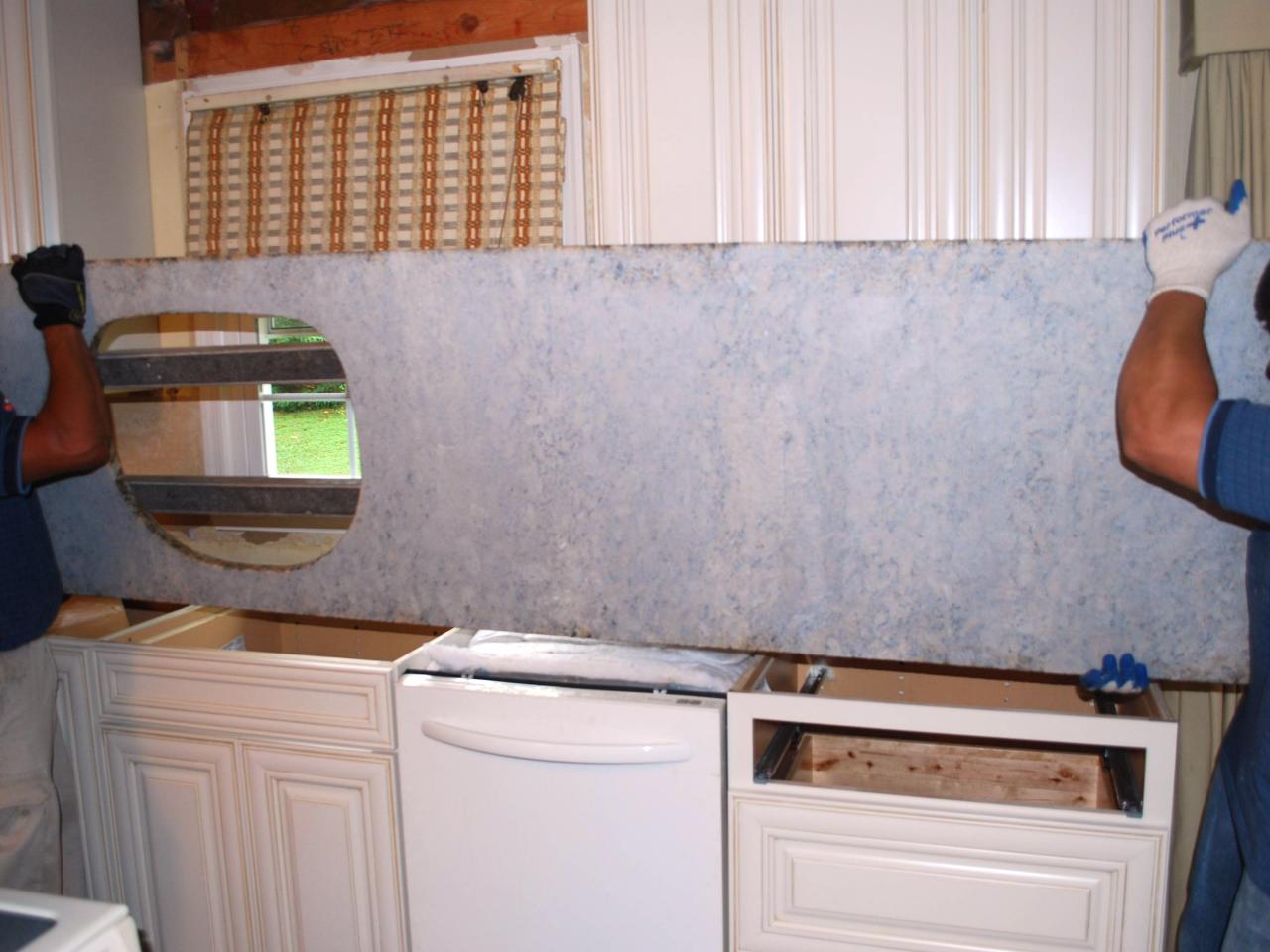
Regular Sealing: Over time, the sealant on your granite countertops may wear off, leaving the surface vulnerable to stains and moisture damage. It’s essential to reseal the countertops regularly to maintain optimal protection. Follow the manufacturer’s recommendations for the frequency of sealing based on your specific granite and usage patterns.
Addressing Stains: If your granite countertops become stained, there are several methods you can use to remove the stains effectively. For organic stains like coffee or wine, baking soda and water paste can be applied to the affected area and left overnight before rinsing with water. For oil-based stains, a mixture of hydrogen peroxide and flour can be applied and left to dry before brushing away.
Professional Restoration: If your granite countertops become damaged or dull over time, professional restoration services can help revive their appearance. This may involve techniques such as honing, polishing, or resealing to restore the granite’s natural beauty and luster.

How do I choose the right granite for my kitchen countertops?
When choosing granite for your kitchen countertops, consider factors such as color, pattern, and finish to ensure it complements your kitchen design. Visit a showroom to see samples in person and discuss your options with a professional.
Is it necessary to seal granite countertops, and how often should it be done?
Yes, sealing granite countertops is essential to protect them from stains and moisture damage. The frequency of sealing depends on factors such as the type of granite and usage patterns, but it’s generally recommended to reseal them every 1 to 3 years.
Can I install granite countertops myself, or should I hire a professional?
While it’s possible to install granite countertops yourself, hiring a professional installer is recommended for a flawless and hassle-free installation. Professional installers have the expertise and tools necessary to ensure a successful outcome.
How do I clean and maintain granite countertops?
To clean granite countertops, use a mild soap and water solution or a granite-specific cleaner. Avoid using harsh chemicals or abrasive cleaners that can damage the sealant. Regular cleaning and maintenance will help preserve the beauty and longevity of your granite countertops.
What should I do if my granite countertops become stained or damaged?
If your granite countertops become stained or damaged, there are several methods you can try to address the issue. For organic stains, a paste of baking soda and water can be effective, while oil-based stains may require a mixture of hydrogen peroxide and flour. For more severe damage, professional restoration services can help revive the appearance of your granite countertops.
How to Update Granite Countertop
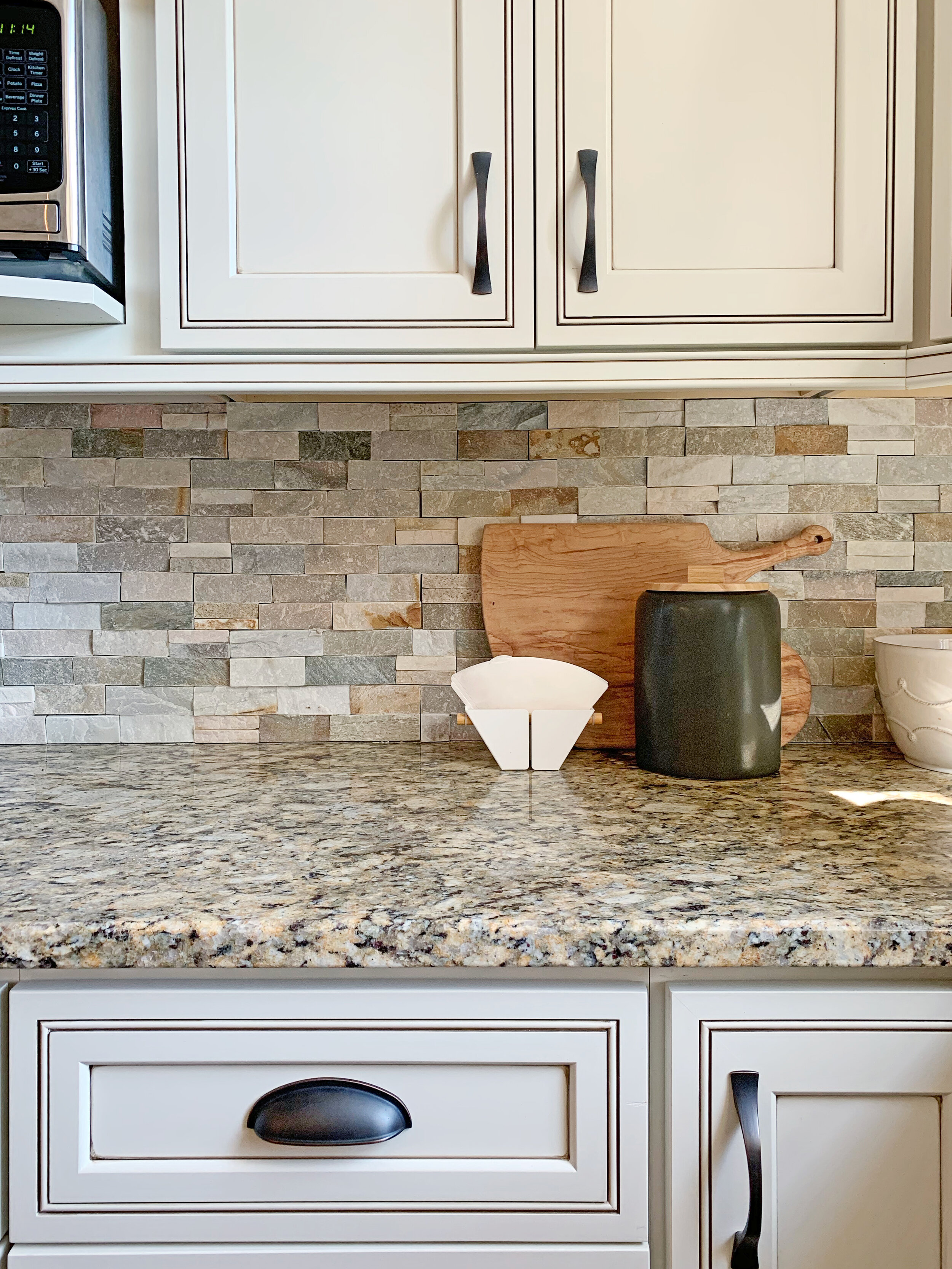
Installing Kitchen Granite Countertop
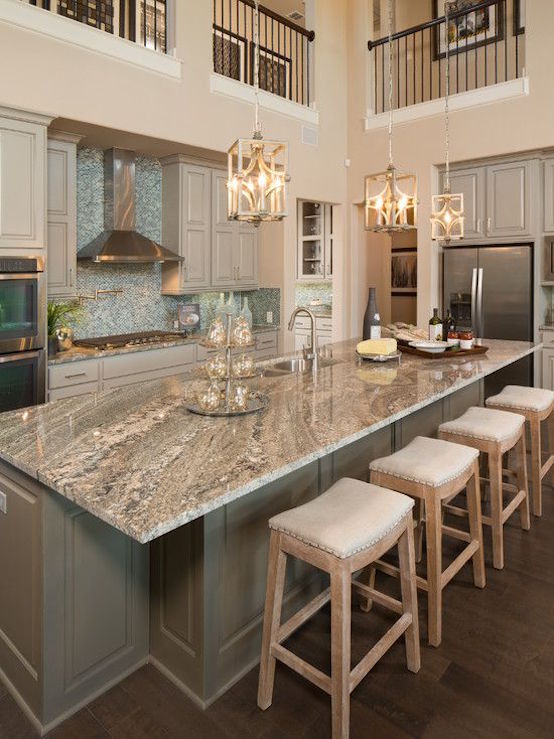
Grey granite kitchen countertops

How to Install a Granite Countertop in 8 Steps Granite Selection
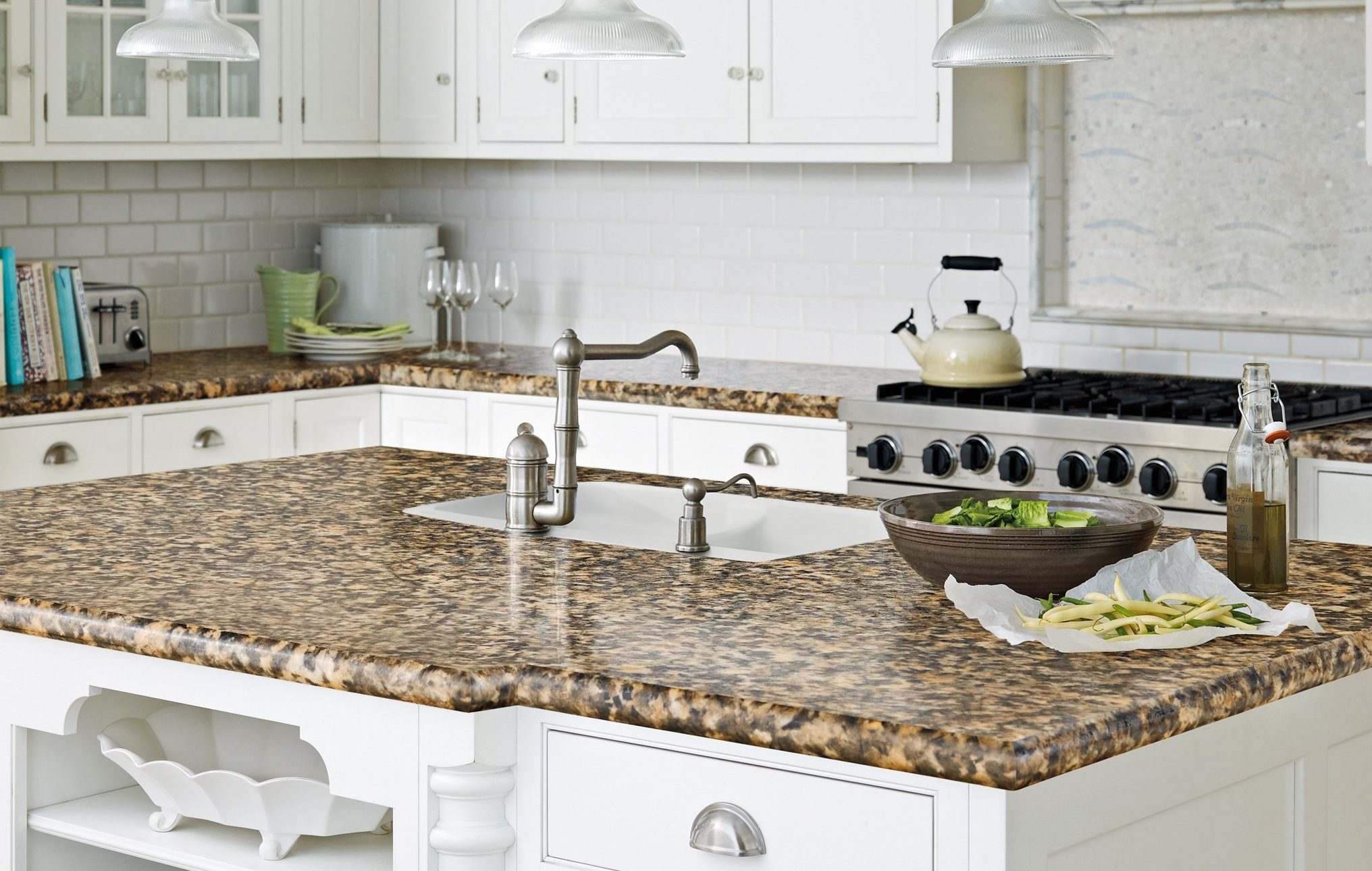
How to Install a Granite Kitchen Countertop
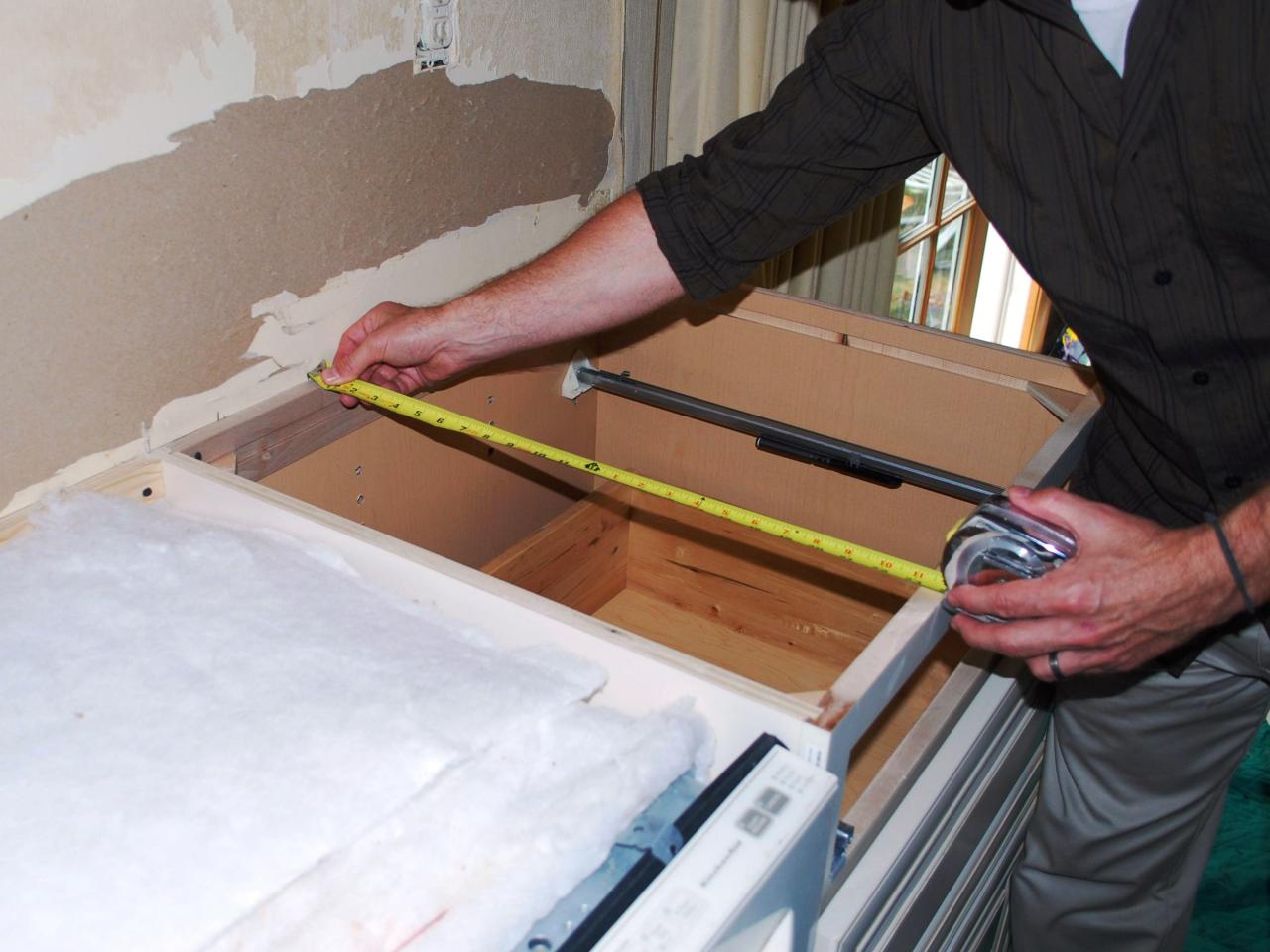
How to Install A Granite Tile Kitchen Countertop how-tos DIY
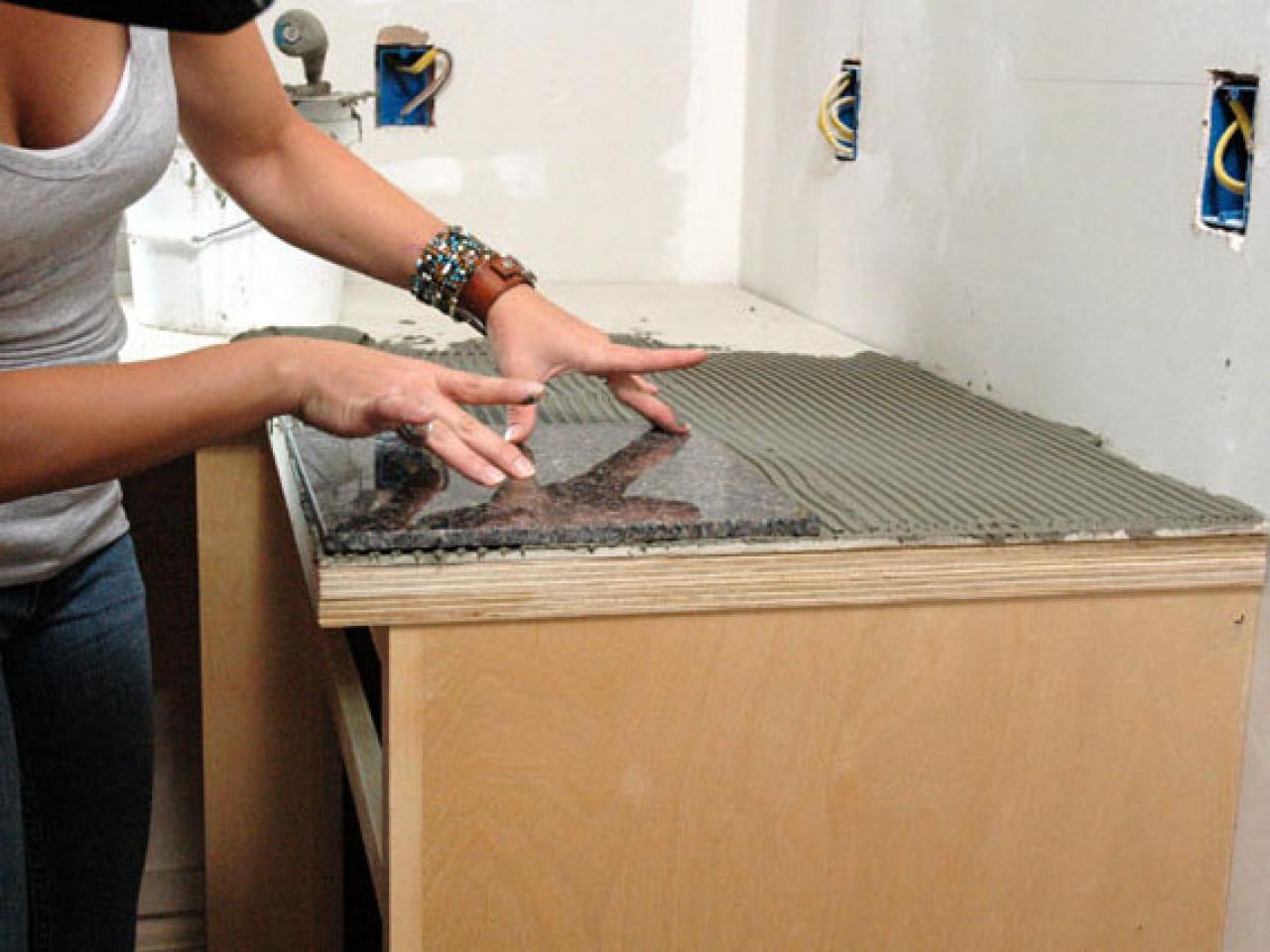
Related articles:
- Kitchen Countertop Ideas
- Cheap Kitchen Countertop Options
- Redoing Kitchen Countertops Yourself
- How To Make A Kitchen Countertop Out Of Wood
- Choosing Kitchen Countertop Colors
- DIY Kitchen Countertops Tile
- Kitchen Countertops Styles
- Decorating Kitchen Countertops
- Cutting Kitchen Countertop Laminate
- Kitchen Countertops Makeover
